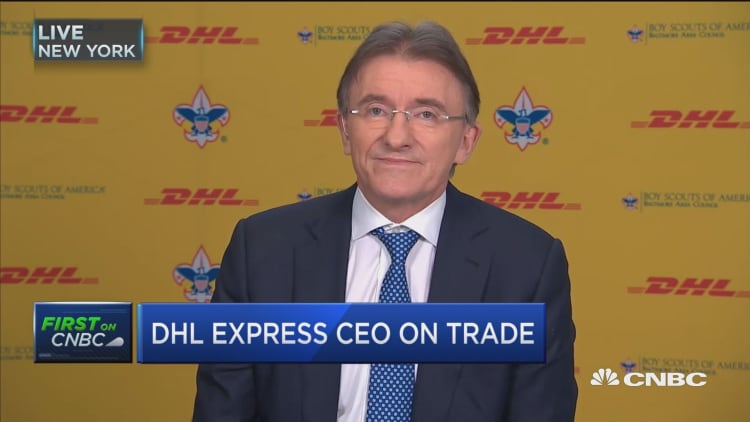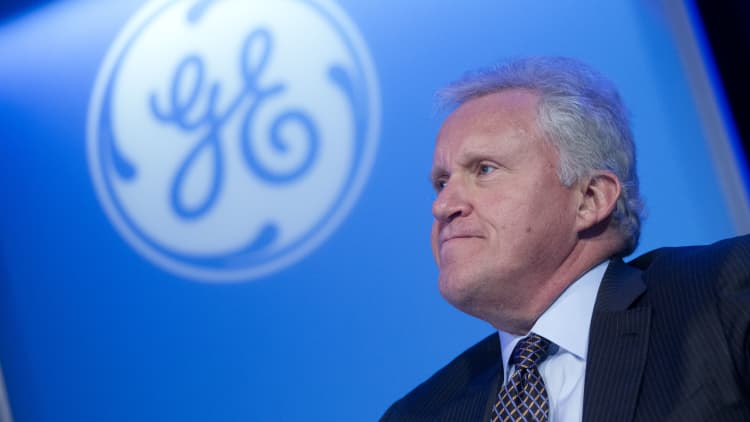The future of trade may be more in the hands of the people than government leaders expect.
U.S. President-elect Donald Trump represents the latest effort by a major economy to bring jobs back home, especially in manufacturing. But analysts and executives see growth coming from a different kind of trade, one driven by technology and which should continue regardless of what politicians from the global powers are saying.
"Market forces will drive trade regardless of what politicians do," said Nariman Behravesh, chief economist at IHS Markit. "Politicians and policymakers can get in the way, as they (have) in the past."
This week Beijing pounced on news that Trump will withdraw from a U.S.-led Asia-Pacific trade deal, effectively killing it. China's President Xi Jinping wants China to take over leadership of Asia-Pacific commerce as the United States retreats.
But "the structure of trade is changing," Behravesh said. Global trade opponents' "big gripe has to do with manufacturing, which, oddly enough, is diminishing in its employment power ... not because of trade, but because of technology."
And the digital age increasingly looks like an era when more transactions between smaller parties are taking place over the internet, and it looks like a marketplace that makes more deals in data and information than in tangible goods.
The next 'revolution'
The internet's launch supported the growth of online marketplaces, first with eBay and Amazon.com in the United States, then with Alibaba in China and Flipkart in India. As such sites broker more and more deals directly between businesses and from businesses to consumers, they likely will become the main international trade channels of the future.
The rise of e-commerce, especially between countries, will be the next "revolution," Ken Allen, CEO of DHL Express, said in a phone interview.
"I think it's a wave. It's a wave … not making a splash at the moment," Allen said. "Just like it took a while for people to use these services domestically, it's going to take them a while to use them internationally."
According to a June report from the U.S. Census Bureau, U.S. e-commerce shipments rose 8.1 percent in 2014 to $3.58 trillion. Total U.S. trade shipments, including e-commerce and other sales channels, grew 1.2 percent to $5.88 trillion. Shipments from e-commerce accounted for 60.9 percent of all manufacturing shipments in 2014, the report said.
Meanwhile, well over 10 percent of global goods trade already occurs through international e-commerce and is expected to more than double in the next few years, according to a March report from the McKinsey Global Institute.
Source: McKinsey Global Institute. Note: Numbers may not sum due to rounding.
Shipments between sellers and buyers connected through the internet tend to be smaller and are less subject to major changes in international trade agreements. For example, DHL said a men's suit merchant in Canada could work with a tailor in Hong Kong who would ship the finished product directly to a customer in the United States.
"E-commerce makes the supply chain of a company a lot more complicated. It creates opportunities for logistics companies to come in and take over the supply chain," said Amit Mehrotra, director, U.S. transportation and shipping, at Deutsche Bank in New York. He initiated coverage of FedEx with a buy rating and UPS with a hold rating in November.
Global online retail sales will rise to $1.91 trillion in 2016, up from $1.55 trillion last year, according to an estimate from eMarketer.
Mehrotra said that even though 2016 U.S. online retail sales have grown more than 20 percent year over year, express delivery companies still face near-term challenges with sending all kinds of products to many addresses in a cost-effective way.
"This is a massive undertaking, trying to get to every entrepreneur in the world, but I don't see anything on the global horizon that can kick-start growth like this can," DHL's Allen said.
"The future is all going to be about small and medium-sized enterprises," he said. "Some will grow into massive businesses."
Information, information, information
Trade is also increasingly less about physical goods and more about information exchange. Emails and online signature programs largely eliminated the need for paper delivery, and IHS' Nariman expects digital transfer of code to allow businesses to reproduce the same item locally using a 3-D printer or similar device.
"The tech revolution is in some sense far more powerful than the trade side," Nariman said, referring to data transmission, trade in intellectual property and the availability of "jobs in high-end businesses, services, consulting."
Those trends make intellectual property, such as copyrights, patents and trademarks, a major part of the future of trade.
Such data flows also increase overall growth, according to McKinsey analysis. In the same March report, researchers said global flows of goods, foreign direct investment and data added about 10 percent to global gross domestic product, or about $7.8 trillion in 2014.
Of that global GDP growth, data flows accounted for $2.8 trillion, according to the McKinsey report. The analysis also showed cross-border data flows have grown 45 times since 2005 and are projected to grow another nine times in the next five years.

Companies also increasingly use patents and specialized knowledge in a business model that relies on local partners for global presence.
"I believe that President-elect Trump will closely observe GE and other large U.S. defense and infrastructure firms that have done well in overseas markets and incorporate those (lessons) into his trade policies," said David Pratt, managing director at MCAM-International, which maintains an archive of documents related to patents, trademarks, copyrights and other intangible assets from 160 countries.
Dow component GE is part of the CNBC iQ 100 Index, which was built using MCAM research. The company analyzed GE's device patents when the company won a contract with China's Three Gorges Dam project in 2005, and China's State Council demanded ownership of those patents, Pratt said.

In 2011 GE announced the formation of a joint venture company with China's state-owned Aviation Industry Corporation of China, or AVIC. As a result of joint patents on airframe manufacturing and some jet engine technologies, Pratt said China's State Council has given GE "very favorable access" to other parts of the Chinese market such as turbines and electric grid infrastructure.
A Trump spokeswoman did not respond to a CNBC.com request for comment. GE did not respond to a request for comment on its China business, and said it had no comment on Trump's potential trade policy other than GE CEO and Chairman Jeffrey Immelt's recent remarks on CNBC.
In that interview last Tuesday, Immelt said on CNBC that the business world has evolved past dependency on free trade deals. "For someone like us that's an exporter, really we make and sell things around the world, we can navigate the world on our own," he said.
GE has locations in 170 countries, according to its website.
Why trade deals still matter for now
While GE and some other companies may already be adapting, a new trade order for the planet certainly may not be what every business wants right now, and it may not even be desirable for global trade.
"Companies will quietly admit that (the North American Free Trade Agreement) is now 25 years old and needs updating. Of course, if we're updating or amending NAFTA, people get nervous," said David Spooner, partner in the corporate department and co-chair of the international trade practice group at Barnes & Thornburg.
Trump has called for an overhaul, and even threatened U.S. withdrawal, from major trade bodies such as the World Trade Organization. On Monday, he reiterated a first-day priority of pulling out of a deal on the Trans-Pacific Partnership, or TPP.
The "WTO has played an important role in the world on creating a rules-based system," Spooner said. There are "tremendous damaging effects" if the organization doesn't exist. But he also said the 21-year-old group has become "dysfunctional."
Critics say the WTO overly favors large countries and businesses, and that it's inefficient. Negotiations on a Doha Development Agenda, which included discussion of intellectual property, have made slow progress since talks began in 2001. A WTO spokesperson was not available for comment to CNBC.
In a world of small businesses selling online, Jack Ma, executive chairman of Alibaba, has called for an alternative to the WTO with a World e-Trade Platform that would set international rules eliminating barriers to e-commerce.
"Right now, with the turmoil of a major transition for a new government, most of the focus is in the macro picture for trade, how it will work — not much on e-commerce," said Heather Conley, senior vice president for Europe, Eurasia and the Arctic at the Center for Strategic and International Studies. Those issues "just have to be focused, prioritized."


